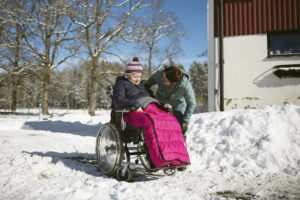So you’ve finished nursing school. Congratulations! However, your nursing education isn’t over until you pass the National Council Licensure (NCLEX) exam. Created by the National Council of State Boards of Nursing (NCSBN), the NCLEX-RN allows nurses to acquire their license to practice, and it is used to determine a nurse’s skills and knowledge for entry-level nursing.
Unlike many other tests, the NCLEX-RN is either “pass” or “fail.” The test has recently undergone a revision called the Next Generation NCLEX, unveiled on April 1, 2023, and the new version contains some significant revisions to evaluate a candidate’s clinical judgment skills.
Next generation NCLEX: what changed?
The latest version of the NCLEX-RN exam assesses nurses’ critical thinking skills and their ability to see the patient holistically, like a detective. The exam is the culmination of more than a decade of research and contains a mixture of questions to keep pace with the current landscape of patient care.
The most significant shift in the new exam format is that it encompasses more case studies and real-world situations that nurses are likely to encounter. It tests a nurse’s ability to handle these situations, not just regurgitate facts. For example, you may be given information about a patient, such as diagnosis, current assessment, lab results, medications and presenting problems, and then be asked to indicate how you would respond or deal with this situation.
The NCLEX-RN includes three case studies with six questions each. In addition, there are other types of questions, including extended multiple responses, drag and drop, and “hot spot” (you select relevant words or phrases from a sample medical record). Another key feature of the revised test version is that you can now receive partial credit for answers.
Getting ready to take the NCLEX-RN
You must contact your local Nursing Regulatory Body, an NRB, to take the exam. There are currently 59 in the United States, and some states have two. You can find contact information on the NCSBN website. You can take the NCLEX-RN up to eight times in one year. Official results are sent from your NRB within six weeks of each test date, but you can usually receive “unofficial” results sooner- within about two days if your NRB participates in the Quick Results Service.
Each state’s board of nursing determines the time it takes to receive a license after passing the NCLEX, ranging from five business days (North Carolina) to seven to ten days (Florida) to 24 to 48 hours (Colorado).
NCLEX-RN tips
Don’t be intimated by the NCLEX-RN: You’ve got this! Follow these tips:
- Start preparing ASAP by taking sample tests; aim for 90 questions per day.
- Make sure you understand the material and the rationale behind it; don’t just memorize facts. When you study, consider why the patient had certain symptoms and why the labs might have looked the way they did. Can you explain the rationale back to someone? Then you probably understand it!
- The test is computer-adaptive – the test questions increase in difficulty as you answer them correctly – so you can’t skip or leave questions unanswered. If you get stuck on a question, take a breath and reread it.
- As you study, absorb information through varied sources like lecture notes and textbooks. Consider listening to a podcast or watching YouTube videos on NCLEX prep, or create a study group for the exam.
- Identify your weak areas and focus on those.
- Avoid second-guessing yourself or reading too much into questions. You’ve been through a grueling nursing program. You have the knowledge! Believe in yourself.
- Get enough sleep and exercise several days beforehand. Limit caffeine intake and stay hydrated. Try to meditate, participate in spiritual practice, take a yoga class or walk. Eat a healthy meal the night before.
- The test has a maximum five-hour time limit, and breaks are built in after two and 3.5 hours. At the testing site, other students may finish their test well before you but don’t get discouraged. The adaptive test determines “pass” or “fail” as it goes. You have no idea how many questions each test taker was given, so try not to compare!
- Remember to bring one form of identification to the testing center, which must be valid and in physical form (non-digital), non-expired and government-issued.
- Review the testing rules carefully ahead of time.
Maxim’s Novice Nurse program
Navigating your first year out of nursing school can be a challenge. Transitioning from hypothetical coursework to working with actual patients and families can be a huge leap! At Maxim, we are helping make that transition a little bit easier. Our Novice Nurse program helps recent nursing graduates interested in home healthcare gain hands-on learning and support from veteran nurses.
Through a combination of on-the-job training and one-on-one mentorship with experienced nurses, new nurses leave the Novice Nurse program with a comprehensive skillset necessary for handling patient emergencies, experience working in a patient home, and increased confidence and competence.
Learn more about the Novice Nurse Program.
Maxim Healthcare Services is always hiring passionate nurses across the country. Join our talent community to receive company updates, personalized job alerts and invites to job fairs and other events.




